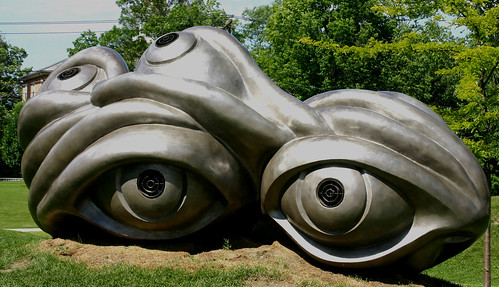The Background
With Previews coming, I thought it might be worthwhile to elaborate on my own Williams visits. Though my
earlier post didn't suggest it, I did make a visit to Williams. After a grand northeast college tour of six well known schools that all failed to make a positive impression, including an Amherst tour guide snickering about the temporary freshman dorms during a renovation, I was unsure if my desire for a small liberal arts education would actually go anywhere.
However, I received a different sort of Prospectus a few months later from a school I'd never heard of, but that had come up in my college "match" lists from the Princeton Review and College Board. To make a long story short, I was immensely impressed by the Prospectus, and added Williams to my long list. I then sent out a few Facebook messages to random people from those schools, and got most or all of them back. The Williams answers were the closest to what I wanted, and got the school on the short list.
My parents managed to figure out that someone who had gone to my elementary school was at Williams, and I e-mailed her. Her answers couldn't have matched my hopes better, and I planned a visit for the fall.
The Overnight Visit
I was hosted by a '10. The Admissions office had apparently had a kerfuffle with my paperwork, such that my host had taken me on as a personal favor at the last minute (the only time I've ever heard of this), and had a lab report to write that night. He showed me a few buildings like Sawyer and pre-renovation Goodrich, and then sat down in Jesup to write his lab report. Since it was Sunday night, he sent me off to Mission to go to a friend's snacks.
Result: My most vivid memory of the visit is of walking through Mission, attempting to find an entry on the wrong side of the building, while all of the happy entries enjoyed their snacks. My introverted nature was in full force, and I couldn't bring myself to interrupt an entire group to ask for directions as a prefrosh.
However, I slept well in the oddly shaped Currier common room above the left door, and enjoyed breakfast the next morning at Driscoll. I had a class schedule, and but managed to go to PSYC 101 on a quiz day, so I headed upstairs to a math class. I have no idea who the Prof was, but when he tried to measure the volume of a
paper object by filling it with water while writing the equations on the board, Williams had been redeemed, and I wisely judged my earlier visit experience to be a fluke. I met my mom at the Admissions office (she took a tour), and we were homeward bound.
Previews
It's a testament to my friend's great answers that Williams couldn't be knocked off of my top spot, and I applied/was accepted ED (which made for a GREAT senior Spring). I wasn't about to spend the money to go to Previews when I had already committed, but I did host people last year. Previews is, obviously, the Admissions Office doing its best to sell Williams to those accepted. Prefrosh generally stay with First-years (though not always), and attend a vast array of activities. My advice to all upcoming visitors is to take sometime to break away from the crowds and plans; when you come to Williams, you will be in charge of your own destiny, and you should spend a few minutes walking around and getting a sense of if you want to call this place home for the next four years.
But above all else, meet people. You aren't going to remember Williams because of the buildings, the food, or the policies that this blog gripes about. You'll remember Williams because of those lunches where you could almost see someone's soul above the Greylock quad, and for that time you spent a few minutes jamming with fellow musicians below Chapin or in Currier. You'll remember Williams because of the great people you chatted with during essay breaks in Sawyer, and because of the good times in a Schow study room while cramming for a test. You'll remember Williams for the conversations deeper than the words exchanged, for the simple pleasure of laying down with friends in the Science Quad, and for the classroom discussions that go far beyond the classroom.
To misquote Jack Sparrow, "Williams is not just buildings and policies and dining; that's what a college needs, but what a college is... what Williams really is...is-"
Finish the quote in the comments. I have my own ideas, but I'd like to hear yours.

